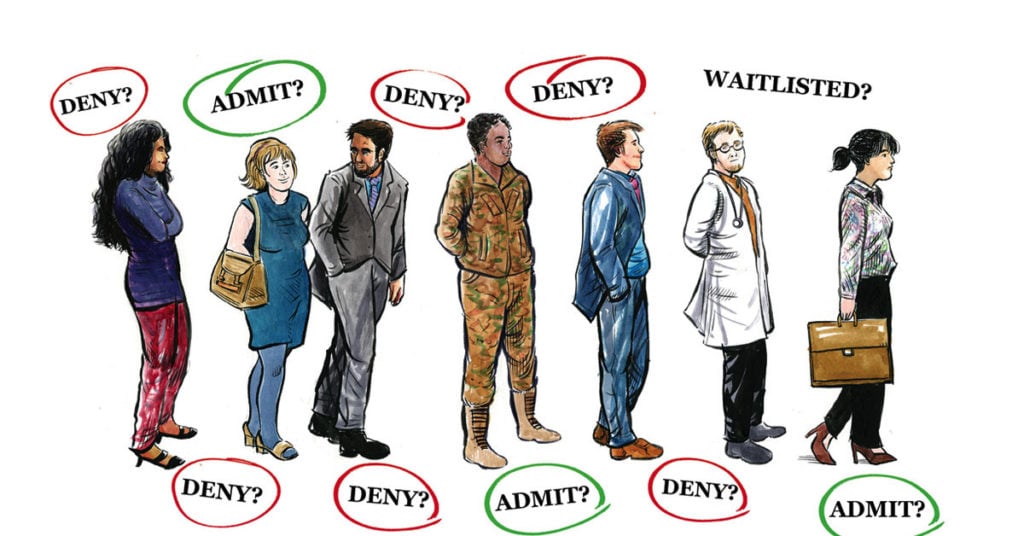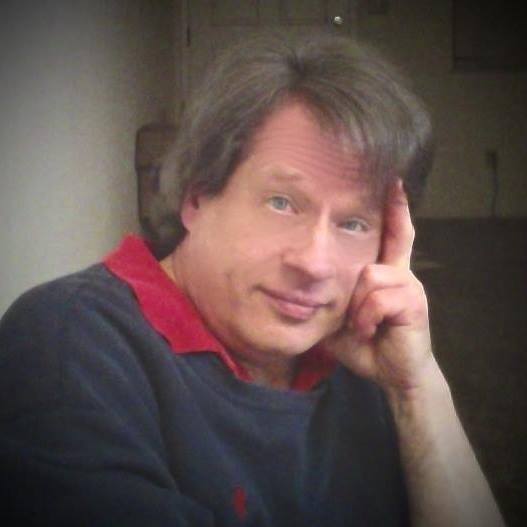Guest article by journalist Douglas Mark

If you’re like many MBA applicants, you might assume that winning entry at the best business schools demands advantages you don’t have. Many candidates presume that elite business schools only accept applicants with nearly perfect grades from top universities, GMAT scores in the top ten percent, and jobs at prestigious employers like Goldman Sachs.
Think again! Often the best admissions coaching can help make up for less-than-perfect profiles. And our recent experience counseling several nontraditional clients demonstrates this effectiveness.
“This fact might surprise you, but many candidates without all those advantages win entry from at least one top-20 school,” says Menlo Coaching founding partner David White. “Sure, ‘walk-on-water’ profiles can’t hurt at Harvard, Stanford and Wharton. But capable admissions coaching can often help compensate for less-than-ideal candidate profiles. And several of our clients demonstrate such outcomes.”
Business Schools Listed in this Article: Wharton, Yale SOM, Duke Fuqua, Emory Goizueta, Georgetown McDonough, UNC Kenan-Flagler
David cites three Menlo clients who won entry at top business schools despite blemishes that typically raise eyebrows among admissions officers: non-officer military service, community college attendance, nontraditional work experience, and suboptimal cumulative GPAs.
He won two scholarships, one for $150,000 to the Yale School of Management, and another for $30,000 to the University of Pennsylvania’s Wharton School. But fourteen years before those business schools accepted him, Menlo Coaching client Tony found himself far from any traditional path to an elite MBA degree.
In the summer of 2006, Tony was winding up his second year as a lead cashier at a Publix supermarket in a small town half an hour north of Atlanta. He started working at that store full-time after he had graduated from high school.
However, a friend had encouraged Tony to join the military to pay for college and support his mother. So after enlisting that September, Tony was soon on his way to Singapore for his first tour of duty with the U.S. Navy. After four years of service, he was a military veteran ready to apply his GI Bill benefits towards his college education.
“Many aspects make Tony’s MBA admissions journey remarkable,” says David. “The first aspect involves his enlistment. Top MBA programs typically admit military officers from one of the undergraduate service academies or ROTC, the Reserve Officer Training Corps. Enlisted veterans like Tony are far less common at the best business schools, but lower rank doesn’t need to prevent top schools from accepting them.”
Faculty and staff at top universities heap derision on community colleges, owing to the often well-deserved reputation for the lack of academic rigor at these two-year programs. Who would have thought that it might be possible for candidates who started at community colleges to win entry at top business schools? Besides Tony, that’s what another Menlo Coaching client named Jason also recently achieved when he won admission to the Fuqua School of Business at Duke University.
Both Jason and Tony used their associates’ degrees as stepping stones to win entry as transfer students at flagship state universities. For example, after graduating from a California community college, Jason earned his bachelor’s degree in business administration from the University of California at Berkeley. But unlike Jason’s, Tony’s path was less straightforward.
Many United States undergraduate colleges that accept transfer students have traditionally imposed an obscure credit-hour residency requirement known colloquially as the “first 90/last 30 rule.” What this phrase means is that a student can graduate from such a college if they earn either their first 90 or last 30 consecutive credit hours in residence on that university’s campus.
Tony masterfully exploited just such a requirement. After his Navy service, Tony started taking courses at a community college in Southern California. Upon graduation he won admission as a transfer student from the undergraduate business division at the University of Texas. Through UT, Tony then spent his junior year abroad at a university in Thailand. Finally, after earning his last thirty hours worth of credits on campus in Austin, he graduated with a bachelor’s degree from the University of Texas.
“Top business schools have a reputation for offering admission to candidates who only studied at exclusive universities,” says David. “But we see many exceptions among our clients.
“Generally, elite business schools accept candidates who attended community colleges under two conditions:
“Tony and Jason met both of those tests. They both had earned grades that won them transfers to the flagship state universities in Texas and California. And they also wrote compelling MBA application essays that justified their decisions to start at community colleges.”
Most MBA candidates worked in industries like management consulting, financial services, and technology. It’s unusual to find students at elite MBA programs who worked in sectors like tax accounting or advertising, but backgrounds like these needn’t pose obstacles.
For example, after college Jason started as a financial analyst for Oracle in Sacramento, which might seem like a typical pre-MBA job. But before applying to business school, he also worked for two years as a non-CPA tax specialist with a small accounting firm. That’s an unheard-of job among elite MBA students, and especially unusual among those like Jason who plan careers in management consulting.
Besides Jason, recently we worked with another Menlo client with a nontraditional work history. His name is Pete, and he won admission to three elite business schools, the Goizueta Business School at Emory University, the Kenan-Flagler Business School at the University of North Carolina at Chapel Hill, and the McDonough School of Business at Georgetown University. What’s more, both Emory Goizueta and UNC Kenan-Flagler offered him $96,000 in scholarships.
A University of Oregon graduate, Pete also embodies a remarkable success story. For almost a year after college, Pete endured unemployment while he faced administrative delays resulting from a potential military enlistment. While he understandably lost patience with the U.S. Department of Defense after nine months of waiting, his job search finally landed a marketing role with a small television advertising firm in Denver. But these days, soon to be equipped with an MBA from Emory Goizueta, he plans a much more lucrative career in investment banking.
How was he able to make that switch? “When we started working with Pete, he didn’t understand the investment banking industry with the level of precision he needed to persuade an MBA admissions committee,” says David. “So we advised him to network with bankers. And we coached him on some of the most useful questions to ask during informational interviews with bankers who, in some cases, were alumni of his target schools.
“But we didn’t stop there. Then we mapped Pete’s transferable skills. Although he was working for an advertising agency, he was analyzing financial data, briefing his managers for complex negotiations, and supervising a junior analyst. And all of those job functions relate closely to the responsibilities of MBAs hired by Wall Street investment banks.”
Hiring a firm like Menlo Coaching may provide the best opportunity many nontraditional candidates like Pete will ever experience to win access to careers within traditional MBA industries like investment banking. In these situations, one might think of hiring a firm like ours as a kind of career insurance in the guise of educational counseling.
These candidates appear to be alike in yet another respect. None of these three candidates distinguished himself through his overall college grade point average. Jason and Tony don’t even mention their cumulative grades on the resumes they submitted with their business school applications.
Pete, however, scored well on the GMAT, which might amount to a key reason why two business schools offered him scholarships. U.S. News and World Report factors GMAT and GRE scores into MBA rankings, and as our article “What is a Good GMAT Score?” explains, it’s well known that elite schools offer scholarships to potential admits with high GMAT scores to improve the school’s position in the U.S. News rankings. At the same time, high admission test scores may be necessary to win a scholarship, but not sufficient. That is, a candidate generally maximizes their scholarship odds only if their application also tells a compelling personal story, which is precisely what Pete accomplished.
We asked David for his overall impressions of these three cases, and what lessons MBA candidates could learn from these clients’ experiences:
To be sure, these candidates have strikes against them. Of the three, Jason and Tony seem especially far removed from the admission norms among admits at most elite MBA programs. Their unique histories placed them within the “left tails” of those bell curves, so to speak.
At the same time, these are inspiring cases. All three clients appreciated their weaknesses, but those deficiencies never discouraged them from striving to win admission from some of the best schools. These clients also offered plenty of strengths, not the least of which involved their perseverance and determination. As a result, Duke Fuqua accepted Jason, three top business schools accepted Pete—with two offering him nearly six-figure scholarships—and Yale’s School of Management and Wharton accepted Tony with almost $200,000 in combined scholarships. These are remarkable accomplishments.
Nobody’s perfect, and most candidates usually have blemishes like low GPAs, low GMAT or GRE scores, or prolonged unemployment. However, readers should recognize a fact borne out by our experience over the years. No matter what their concern, if they’re working with a capable admissions consultant at a firm like ours—an experienced, trusted advisor who understands how to emphasize their best qualities in the most compelling ways—a significant probability always exists that at least one elite school will accept them. And in our experience, that probability often turns out higher than our clients expect.
One of the strategies we apply with clients like Jason, Pete and Tony is that we help them frame their application components—like their resume, essays and interview responses—in terms of overcoming obstacles. If they emphasize clear examples where they’ve prevailed over impediments, they can often win over admission committee members who might otherwise harbor doubts about whether that candidate can succeed at their business school.
For example, in their applications, Tony did that when he talked about how he seized upon an opportunity to serve his country, and Pete did that when he spoke about how he rebounded after nearly a year of interviews by thriving in his new job. But often, creating that impression of competence in overcoming obstacles can be more crucial than the specific nuances of each example.
Why? That’s because our objective is to inspire confidence in the minds of each admissions committee that our client will triumph over whatever challenge an elite business school might throw at them. Helping our clients inspire that confidence is what ultimately wins them admission.

While a partner in a San Francisco marketing and design firm, for over 20 years Douglas Mark wrote online and print content for the world’s biggest brands, including United Airlines, Union Bank, Ziff Davis, Sebastiani, and AT&T. Since his first magazine article appeared in MacUser in 1995, he’s written on graduate management education and finance as well as mobile online devices, apps, and technology. Doug graduated in the top one percent of his class with a business administration degree from the University of Illinois and studied computer science at Stanford University.